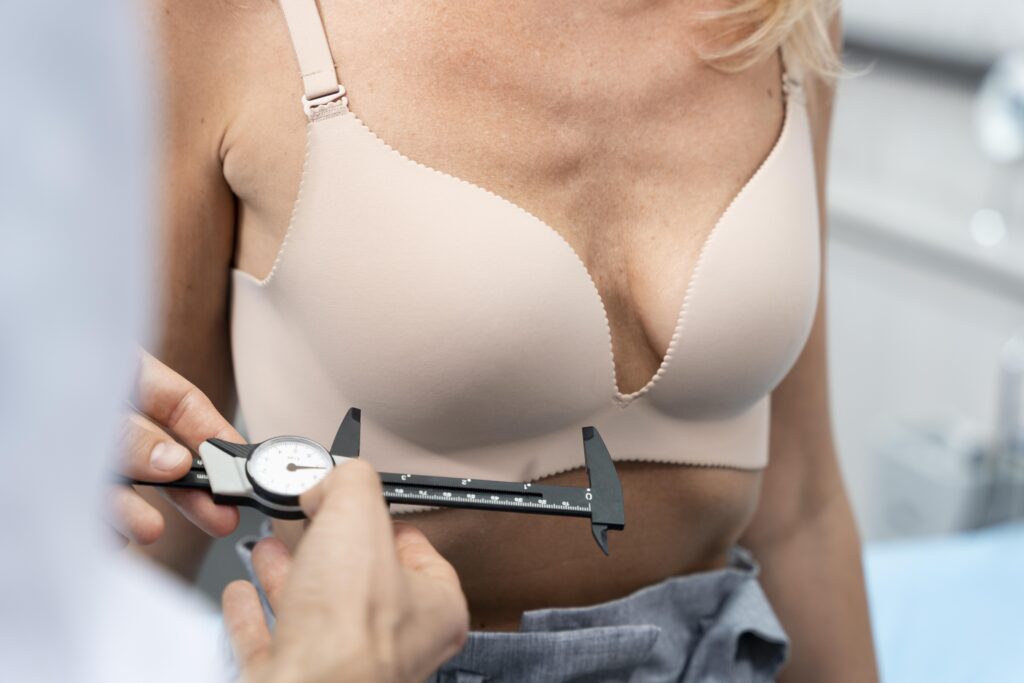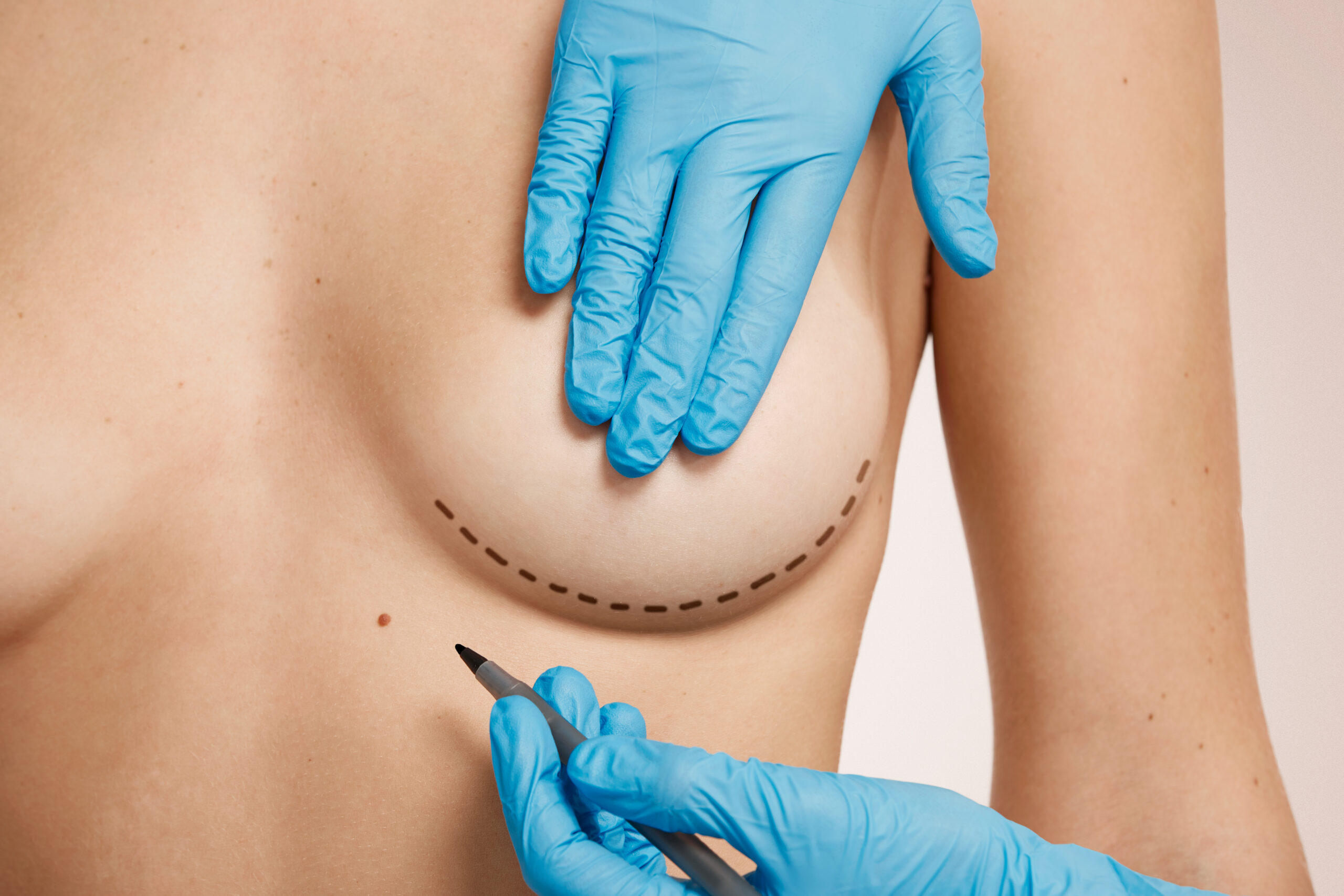

Breast Reduction Surgery
Breast reduction, also known as reduction mammoplasty, is a surgical procedure aimed at reducing the size and reshaping the breasts to achieve a more proportionate and aesthetically pleasing appearance. It’s often performed to alleviate physical discomfort and improve quality of life for individuals with disproportionately large breasts.
Why Breast Reduction Surgery ?
The goal of breast reduction surgery is to reduce the size of your breasts and reshape them so that they are proportionate to the rest of your body and are no longer a source of physical discomfort. This commonly requested, predictable procedure has the dual benefits of improving your appearance while relieving the physical and emotional burden of overly large breasts.
Surgical Techniques For Breast Reduction:
There are different surgical techniques for breast reduction, but they generally involve removing excess breast tissue, skin, and fat to reduce breast size and reshape the breasts. The specific technique used depends on factors such as breast size, shape, and desired outcome, as well as surgeon preference.
Scarring: Breast reduction surgery results in scarring, which typically fades over time but may remain visible. The extent and location of scarring depend on the surgical technique used. Your surgeon will discuss scar placement and ways to minimize their appearance during the consultation.
Recovery: Recovery from breast reduction surgery involves some discomfort, swelling, and bruising, which can be managed with pain medication and proper post-operative care. Patients are typically advised to avoid strenuous activities and heavy lifting for several weeks to facilitate healing.
Results: Breast reduction surgery can provide immediate relief from physical symptoms and improve overall body proportion and self-confidence. However, final results may take several months to fully manifest as swelling subsides and the breasts settle into their new shape.
Risks: Like any surgical procedure, breast reduction surgery carries some risks, including infection, bleeding, and changes in nipple sensation, asymmetry, and complications related to anesthesia. It's essential to discuss these risks with your surgeon and ensure that you understand the potential benefits and drawbacks of the procedure.

Ideal Candidate For Breast Reduction Surgery:
Ideal candidates for breast reduction surgery are in good overall health, have realistic expectations about the outcome of the procedure, and are bothered by physical discomfort or limitations caused by large breasts. It’s important to undergo a thorough consultation with a qualified plastic surgeon to determine if breast reduction is the right option for you.
Breast reduction surgery can have a transformative impact on both physical comfort and self-esteem for individuals with disproportionately large breasts.




Post-operative Care After Breast Reduction:
Post-operative care following breast reduction surgery is crucial for promoting healing, minimizing discomfort, and achieving optimal results. Here are some general guidelines for post-operative care:
Follow Surgeon’s Instructions: Your surgeon will provide specific instructions tailored to your procedure and individual needs. Follow these instructions carefully, including any medications prescribed for pain management, antibiotics to prevent infection, and wound care.
Manage Discomfort: It’s normal to experience some discomfort, swelling, and bruising after surgery. Take pain medication as prescribed by your surgeon to manage pain and discomfort. Applying cold compresses or ice packs to the breasts can also help reduce swelling and discomfort.
Wear Compression Garments: Your surgeon may recommend wearing a supportive surgical bra or compression garment to help reduce swelling, provide support to the breasts, and promote healing. Wear the compression garment as directed by your surgeon, typically for several weeks post-surgery.
Monitor Incisions: Keep an eye on your incision sites for any signs of infection, such as increased redness, swelling, warmth, or drainage. Contact your surgeon if you notice any concerning changes or signs of infection.
Follow a Healthy Diet: Eating a healthy, balanced diet can support the healing process. Ensure you’re getting plenty of nutritious foods, staying hydrated, and avoiding excessive alcohol consumption.
Attend Follow-Up Appointments: Attend all scheduled follow-up appointments with your surgeon to monitor your progress, remove any sutures or drains if necessary, and address any concerns or questions you may have.
Scar Care: Follow your surgeon’s instructions for scar care, which may include keeping the incision sites clean, applying scar treatment products as recommended, and avoiding sun exposure to prevent hyperpigmentation of scars.
Be Patient: Remember that healing takes time, and it may take several weeks or even months to see the final results of your breast reduction surgery. Be patient with the process and trust that your body is healing as it should.
By following these post-operative care guidelines and staying in close communication with your surgeon, you can help ensure a smooth recovery and achieve the best possible outcome from your breast reduction surgery.
Dr. V.K.Srinagesh
He is an experienced and qualified plastic , reconstructive and cosmetic surgeon. He did his MBBS from SCB Medical college, Cuttack, MS (General surgery) from MKCG medical college, Berhampur and MCh from the prestigious Madras Medical College, Chennai. He trained in various specialities, namely cardiac surgery, Orthopedics, paediatric surgery, maxillofacial surgery from reputed medical colleges and hospitals like AIIMS, New Delhi, TN medical college and hospital, Mumbai, Nair hospital and dental college, Mumbai, Christian medical college, Ludhiana and Stanley medical college, Chennai to name a few.
- Breast reconstruction at Miami medical center
- Fat grafting, advanced liposculpture techniques at Birkenwerder
- Management of lipedema at Birkenwerder
- Pioneer in the management of lipedema in India

Breast reduction in Hyderabad
Breast reduction in Hyderabad
Breast reduction in Hyderabad
Breast reduction in Hyderabad
Frequently Asked Questions
Breast reduction surgery, also known as reduction mammoplasty, is a procedure aimed at reducing the size and reshaping the breasts to alleviate physical discomfort and improve overall body proportion.
Ideal candidates for breast reduction surgery are individuals who are bothered by physical symptoms such as back, neck, or shoulder pain caused by disproportionately large breasts. Candidates should also be in good overall health and have realistic expectations about the outcome of the procedure.
Breast reduction surgery typically involves removing excess breast tissue, skin, and fat through carefully placed incisions. The specific surgical technique used depends on factors such as breast size, shape, and desired outcome, as well as surgeon preference.
Yes, breast reduction surgery results in scarring, which typically fades over time but may remain visible. The extent and location of scarring depend on the surgical technique used. Your surgeon will discuss scar placement and ways to minimize their appearance during the consultation.
Recovery from breast reduction surgery involves some discomfort, swelling, and bruising, which can be managed with pain medication and proper post-operative care. Patients are typically advised to avoid strenuous activities and heavy lifting for several weeks to facilitate healing.
Breast reduction surgery may affect your ability to breastfeed, depending on the surgical technique used and the extent of tissue removal. It’s essential to discuss your breastfeeding goals with your surgeon during the consultation.
Like any surgical procedure, breast reduction surgery carries some risks, including infection, bleeding, changes in nipple sensation, asymmetry, and complications related to anesthesia. It’s important to discuss these risks with your surgeon and ensure that you understand the potential benefits and drawbacks of the procedure.
In some cases, breast reduction surgery may be covered by insurance if it’s deemed medically necessary to alleviate physical symptoms. Requirements for insurance coverage vary, so it’s essential to check with your insurance provider and your surgeon’s office to determine coverage eligibility.
These FAQs provide a starting point for understanding breast reduction surgery, but it’s essential to discuss your individual concerns and questions with a qualified plastic surgeon during a consultation.
